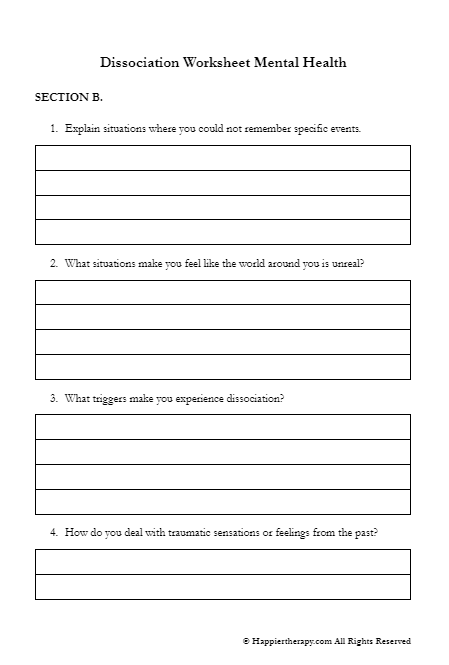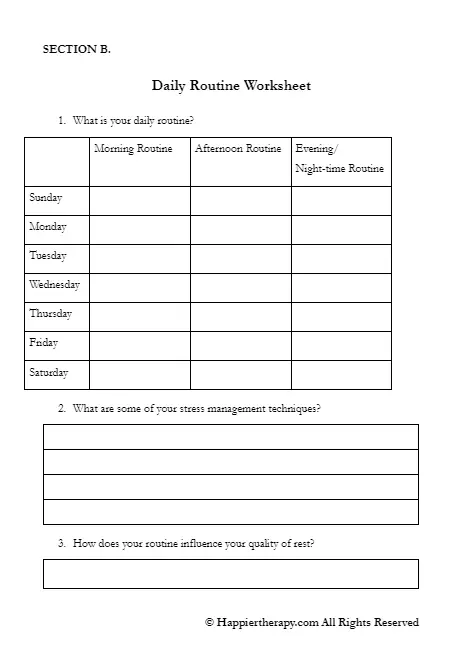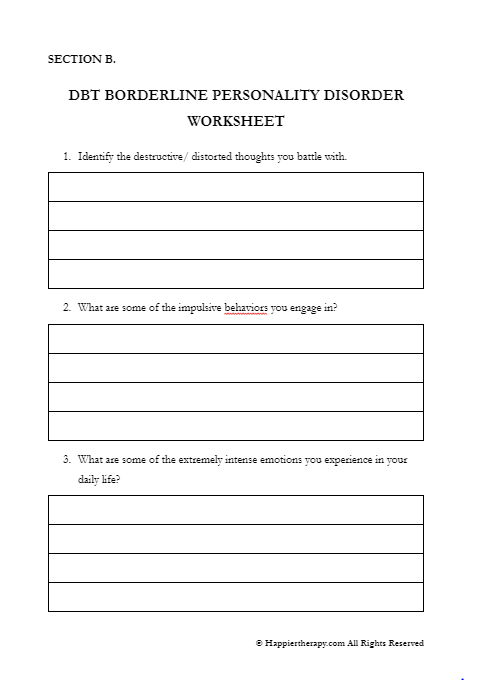Wise mind worksheet example
What is the theory behind the wise mind worksheet example?
The theory behind the wise mind worksheet is based on the idea that individuals have three states of mind: the “reasonable mind,” the “emotional mind,” and the “wise mind.” The reasonable mind is logical and analytical, the emotional mind is reactive and impulsive, and the wise mind is a balance of the two. The wise mind is able to access the best aspects of both the reasonable and emotional minds to make sound decisions that are grounded in reality. The “wise mind” concept is a central idea in Dialectical Behavior Therapy (DBT), a form of cognitive-behavioral therapy that was developed to help individuals with borderline personality disorder (BPD) and other difficulties regulating emotions. The wise mind worksheet is an exercise that helps individuals learn how to access their “wise mind” and make decisions that are in line with their values and goals
How will this worksheet help?
The goal of the wise mind worksheet is to help individuals access their wise mind in order to make more balanced and healthy decisions.The wise mind worksheet can help individuals in several ways. For example, it can help them:
- Identify and label their emotions and thoughts more accurately
- Distinguish between the emotional and rational aspects of their mind
- Evaluate the pros and cons of different actions before making a decision
- Improve their ability to regulate their emotions
- Increase their ability to make healthy decisions
How to use this worksheet?
To use the worksheet, one start by reading through the information provided and understanding the concept of wise mind. Then, the individual can complete the exercises and prompts on the worksheet, such as identifying and describing a recent situation where they struggled to balance their emotion mind and reasonable mind. They can then reflect on how they might have been able to access the wise mind in that situation and what the outcome might have been if they had.
Was this helpful?
References
1.-
The wise mind. (n.d.). Therapist Aid. https://www.therapistaid.com/therapy-worksheet/wise-mind
2.-
(n.d.). Get.gg – Getselfhelp.co.uk. https://www.getselfhelp.co.uk

 By
By



